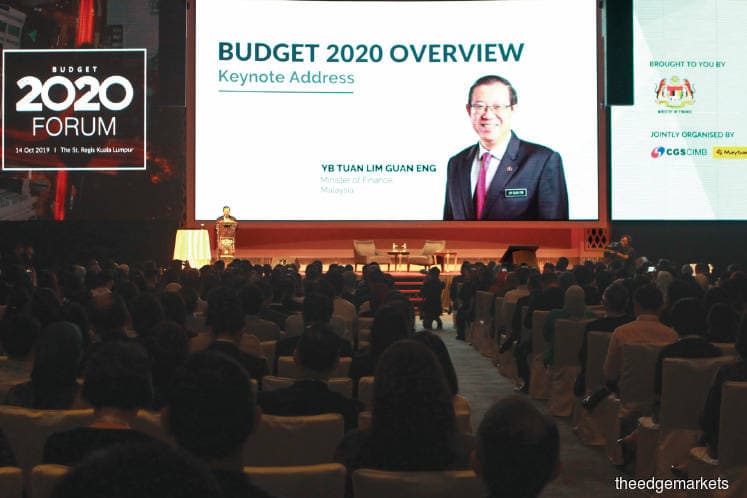
This article first appeared in The Edge Financial Daily on October 15, 2019
KUALA LUMPUR: Finance Minister Lim Guan Eng said the new 30% income tax band for those earning above RM2 million, which is expected to affect 2,000 individuals, will raise about RM100 million in tax revenue.
Lawyer Wong Sue Wan, partner at Wong & Partners, had posed questions on the new tax band to the finance minister during a question-and-answer session, which she moderated at the Budget 2020 Forum yesterday.
Guan Eng said the proposal for the increase in tax was made by the World Bank.
“The World Bank figured that our top marginal tax rate for the country is too low compared with other neighbouring countries and advised us to increase it. Even by increasing the income tax [for those earning above RM2 million] to 30%, we are still among the lowest,” said the minister.
He added that the wealthy should be able to afford the two- percentage point increase in tax, and said that this would contribute to economic growth, which will in turn, grow the income of the wealthy and hence covering the marginal rise in tax.
“Perhaps you could let us know how much you intend to raise [via the new tax bracket]?” asked Wong.
“I don’t think it would be that much. We are looking at probably around RM100 million,” said Guan Eng.
Asked whether this would be the first step towards higher taxes in the future, the finance minister did not provide a specific answer. However, he made it clear that there were no wealth or inheritance taxes in the works.
During the session, Guan Eng also talked about the Government Procurement Act, as Wong had pointed out that it was first mentioned in Budget 2019 but it had not been tabled and there was no mention of it in the latest budget either.
“The wheels of parliament move on its own accord,” responded Guan Eng. But he stressed that the government intends to do it.
Similar to the government’s shift to accrual-based accounting from the current cash-based accounting, he said Putrajaya hopes to have everything in place by 2021.
“This takes time not only in Malaysia, as other countries also take time to do this. In the UK, it took them about eight years to do the same thing.
“Investors know that the government means business when we talk about institutional reforms and the various policies and amendments it involves,” he said.
Following that, Wong moved to the topic of Industrial Revolution 4.0 and the move towards a more digital Malaysia, asking the minister whether the members of the administration have the capacity to execute the transformation.
Guan Eng admitted that bureaucratic intricacies in place in the government are a hurdle for execution, which is why it is relying on specialised agencies to deliver on some of the initiatives.
For example, the Malaysians@Work initiative will be executed by the Employees Provident Fund, while the digital stimulus programme, which aims to encourage citizens to use digital payments, will be done by Khazanah Nasional Bhd, he said.